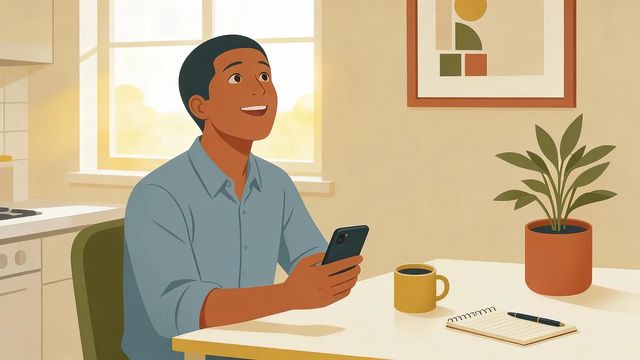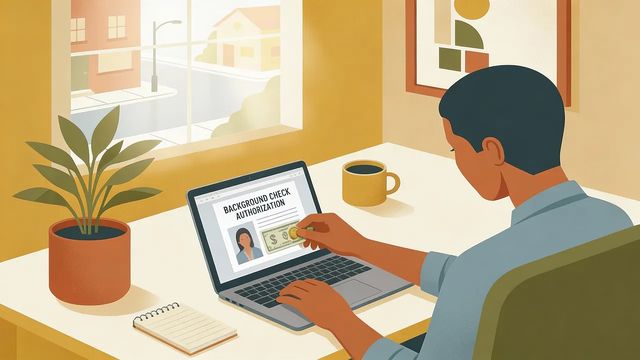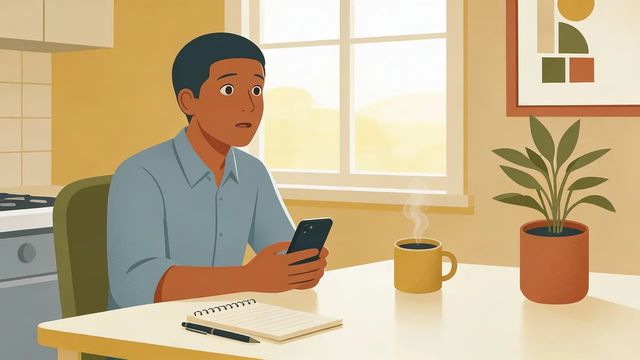Nottoway Corrections Center, Va
Explore
Find an Inmate at Nottoway Corrections Center, Va
Search for a loved one and send messages and photos in minutes.

Guides for This Facility

How to Set Up Your Phone Number to Receive Calls from Nottoway Corrections Center
Before you can receive calls from someone at Nottoway Corrections Center, your phone number needs to be on their approved call list. You'll also need to complete an automated consent call. Here's how the process works and what you need to do.
Read Guide
How to Add Money to an Inmate's PIN Debit Account at Nottoway Corrections Center
To fund phone calls for someone at Nottoway Corrections Center, you'll use ConnectNetwork (operated by Global Tel*Link). Here's what a PIN Debit account is, what you'll need, and exactly how to make a deposit.
Read Guide
How to Accept Your Loved One’s First Call from Nottoway Corrections Center (what families must do)
That first phone call can catch you off guard—especially if your number isn't set up yet. Here's what you need to do so calls from Nottoway Corrections Center actually go through.
Read GuideAt a Glance
Visitation
- Virginia facilities commonly offer both in-person and video visitation; availability at a given facility varies.
- All visitors must be registered and approved before scheduling visits; processing can take longer for out-of-state applicants.
- Video visits typically require advance scheduling, often at least 24 hours before the visit.
Communication
- Inmates and CCAP probationers/parolees are automatically enrolled in the DOC telephone system upon reception into DOC.
- An inmate’s initial four-digit telephone PIN is set automatically to the inmate’s month and date of birth (MMDD).
- Each inmate’s approved-call list is limited to 15 telephone numbers.
Sending Money
- ConnectNetwork deposits require the inmate’s 7‑digit state ID number.
- To set up AdvancePay or get deposit assistance, contact ConnectNetwork (Global Tel*Link) or call 1 (800) 483‑8314.
- Available deposit methods, processing times, and fees vary by facility and vendor; check the facility’s information for exact options.
Inmate Lookup
- The Virginia DOC inmate locator shows people currently in state custody; if someone isn’t listed they may be held elsewhere.
- Search results typically list housing location, current charges, bail amount, and next court date.
- To run a reliable search you usually need at least the first letter of the inmate’s first name and the full last name, or the inmate’s ID number.
Contact Info
- For prepaid AdvancePay account setup and information contact ConnectNetwork (Global Tel*Link) at 1 (800) 483-8314.
- To deposit to an inmate's PIN Debit Account via ConnectNetwork you must create an account, select VA and Department of Corrections, and know the inmate's 7-digit state ID number.
- Inmate calls on the CCAP telephone system are limited to 20 minutes unless the Director authorizes longer calls.
Based on official sources and community feedback. Learn how we verify
Topic Overviews
Visitation
Nottoway Corrections Center offers in-person and/or video visits, though the exact format depends on the facility's current schedule. Before visiting, you must be registered and approved—processing takes longer if you're applying from out of state. Video visits typically require booking at least 24 hours ahead, while in-person scheduling windows vary. Plan ahead: bring a valid government-issued photo ID that matches your visitor application, follow the dress code, and make sure any minors are listed and accompanied by an approved adult. To add funds, set up a ConnectNetwork account, select VA and Department of Corrections, and use the inmate's 7-digit state ID. For AdvancePay help, call 1-800-483-8314.
Communication
Inmates and CCAP probationers/parolees at Nottoway Corrections Center are automatically enrolled in the Virginia DOC telephone system upon reception. The initial four-digit phone PIN is set to the birth month and day (MMDD). If the PIN doesn't work, dial #21 to report the problem to the contract vendor. Each inmate can have up to 15 approved phone numbers, but your number won't activate until you complete the automated consent process—this includes acknowledging that calls may be monitored and recorded. Properly verified attorney calls are exempt from monitoring, and inmates can use administrative phones for legal calls under legal-access policy. Calls are generally limited to 20 minutes unless the Director authorizes longer. Fund calls through prepaid AdvancePay accounts or deposits via ConnectNetwork using the inmate's seven-digit state ID. You can also deny collect or debit calls.
Read full guideSending Money
The primary documented way to add money for someone at Nottoway Corrections Center is through ConnectNetwork for PIN Debit deposits. Create a ConnectNetwork account, choose Virginia and Department of Corrections, and enter the inmate's 7-digit state ID number. ConnectNetwork (Global Tel*Link) also supports AdvancePay/prepaid family accounts—call 1 (800) 483-8314 for help with deposits or account setup. Deposit methods, fees, and posting times vary by facility and vendor, so confirm your options before sending funds. Have the inmate's full name and ID ready when making a deposit. Mailed or third-party deposits typically require your name and return address too. If funds don't post, contact the vendor or the facility's finance/commissary office.
Read full guideInmate Lookup
Start with the Virginia DOC inmate locator to check whether someone is at Nottoway Corrections Center. If needed, try a local facility or county offender lookup to confirm state custody. No results? They may be held elsewhere or the record may not be updated yet. For best results, search using at least the first letter of the first name plus the full last name, or the DOC ID number. Results typically show housing location and may include current charges, bail amount, and next court date—though details can lag or be incomplete. For more detailed case information, check state court resources for amended or docketed records. Setting up calls? Virginia DOC phone accounts are auto-enrolled at reception, with the initial four-digit PIN defaulting to birth month/day (MMDD). Your number won't activate until you complete the automated consent process and accept monitoring/recording rules.
Common Questions
Showing 6 of 15How do I get approved to visit someone at Nottoway Corrections Center?
Submit the visitor application and background authorization to the Central Visitation Unit, then wait for approval before trying to schedule a visit. If you’re applying from out of state, processing may take longer.
VisitationCan I do a video visit and how far in advance should I schedule it?
Video visitation is commonly available at Virginia facilities, though availability at Nottoway depends on the current setup and schedule. When offered, video visits typically need to be booked at least 24 hours in advance.
VisitationHow can I add money to an inmate's account at Nottoway?
Use ConnectNetwork to deposit to a PIN Debit Account: create an account, select VA and Department of Corrections, and enter the inmate’s 7-digit state ID. For AdvancePay setup or questions, call 1-800-483-8314.
VisitationHow do I report problems with an inmate’s telephone PIN at Nottoway?
Dial #21 to report PIN problems to the contract vendor if an inmate’s telephone PIN isn’t working.
CommunicationCan I add my cell phone to an inmate’s approved call list at Nottoway?
Yes. Cell phones and other wireless numbers can be added like landlines, but the call list is capped at 15 numbers and your number only activates after you complete the automated consent process.
CommunicationHow can I stop receiving collect or debit calls from a Nottoway inmate?
You can deny any collect or debit call from an inmate. Since a number must have subscriber consent to become active in the first place, you may need to refuse consent or contact the vendor for account-level controls.
CommunicationMore Guides
Ready to Connect?
Search for your loved one to start communicating today
Did You Know?
When someone arrives at a DOC facility, they're automatically enrolled in the telephone system — the same goes for CCAP probationers and parolees.
This guide is based on feedback from 75 families and official facility documentation. Learn how we verify
